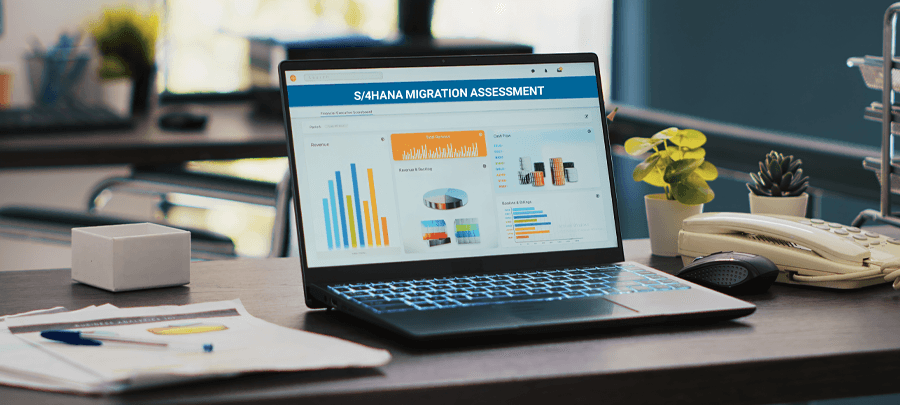SAP S/4HANA 1709 - Transforming Logistics
01 November 2019


Nishanth Karimbil
Consulting LeadNishanth Karimbil is an SAP MM and S/4HANA consulting lead at Applexus. He has over 7 years of functional experience in the manufacturing industry, in the...
The global logistics market, driven by the trade surge in the Asia Pacific region will attain a market size of around $12,256 billion by 2022. In an increasingly globalized market, logistics goes beyond the traditional movement of goods and information between the provider and the receiver.
Today, logistics is the management of the flow of goods between the point of origin and the point of consumption in order to meet the requirements of customers or corporations. The resources managed in logistics can include physical items such as food, materials, equipment, and liquids as well as abstract items, such as time and information.
In terms of an SAP solution, logistics is the detailed organization and implementation of a complex operation. It includes transportation and warehousing undertaken by the logistics provider for the efficient and effective delivery. In the past, supply chain systems used ERP systems that were supported by separate applications for Transportation Management and Extended Warehouse Management.
SAP S/4HANA Logistics – An Introduction
SAP S/4HANA Logistics is also known as SAP S/4HANA Enterprise Management. It covers both financial and logistics operations and supports almost all core operations as much as a traditional ERP system would do. SAP S/4HANA Logistics provides simpler, faster and more efficient approaches to solve logistics and supply chain problems. It provides a range of choices in deployment models: cloud, on-premise, and hybrid.
In September 2017, SAP S/4HANA 1709 became the third release in a row of SAP’s digital core. SAP S/4HANA 1709 is a product and enterprise management business suite superimposed on HANA meant to meet market demands in the shortest possible time. With SAP S/4HANA 1709, businesses can use a simple landscape with integrated solutions to manage supply chain operations.
SAP S/4HANA 1709 provides a single source of truth for all operations. These include functions like material management, production planning, supply chain management, as well as sales and distribution for organizations with medium to large infrastructure.
Enter the SAP EWM
SAP Extended Warehouse Management (SAP EWM) is now part of SAP’s new enterprise management suite. Its integrated functions and business processes help to efficiently plan stock-picking processes, imparting inventory transparency, and streamlining processing of goods movement.
SAP Extended Warehouse Management provides you with real-time intelligence on warehousing operations from put away and picking to goods receipt and goods issues. It covers advanced activities like cross-docking, kitting and value-added services. Moreover, businesses can integrate their warehouse processes with SAP Transportation and SAP Global Trade Service (SAP GTS).
Large enterprises handling a high volume of goods can run on a decentralized warehouse system. Smaller and mid-size warehouses can rely on embedded Extended Warehouse Management in this version of SAP S/4HANA.
SAP Extended Warehouse Management Functionalities
Businesses can now monitor and execute customer delivery promise promptly for omnichannel retail with the Advanced Available-to-Promise (ATP) business function. Based on resource availability, the system creates a customer response that provides information about the available quantity of the requested products and their estimated delivery dates.
The one-size-fits-all concept does not work for product segmentation that targets different categories of customers. A product may be targeted at a specific customer base for a specific price. The ATP functionality enables systems to perform product availability checks based on the customer segmentation attribute. For instance, the system differentiates between online and sales created through other channels by maintaining different available to promise quantities.
Conclusion
SAP Transportation Management—as part of the SAP S4/HANA 1709 release holds immense value proposition for the logistics industry. It is a solution that enables end-to-end transportation management from transportation capacity and demand planning to freight tendering, freight and forwarding settlement, order management and collaboration with shippers.
SAP Transportation Management helps in optimizing all inbound, outbound, domestic and international shipments. It integrates business and logistics throughout the network of shippers, logistics service providers, and carriers.
Businesses can now get all the proven benefits from SAP Transportation Management developments up-to-date within the S/4HANA platform. Core Data Services (CDS) of the platform could be harnessed to build dashboards and intuitive reporting functions. These services were previously unavailable, for landed cost analysis and real-time performance visibility.
SAP S/4HANA has a simple unified landscape along with a common user experience for any line of business. In short, the SAP S/4HANA 1709, with its extensive set of newly added functionalities, is an idea whose time has come for the global logistics industry.
About Applexus
Applexus Technologies (Applexus) is the global technology leader offering business consulting and SAP services to transform customers through digital innovation. We specialize in advisory, migration, implementation, and management of SAP S/4 HANA and B/4 HANA solutions. Applexus delivers transformational business solutions for a marquee list of clients spanning retail, fashion, and consumer products industries. Applexus operates out of centers in North America, the United Kingdom, the Middle East, and India.
Sources:
www.sap.com
blogs.sap.com
www.alliedmarketresearch.com/logistics-market












